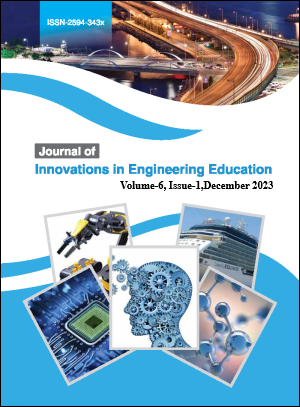Assessment of municipal solid waste management and socio-economic challenges in integrated solid waste management (A study of Rampur municipality, Palpa)
DOI:
https://doi.org/10.3126/jiee.v6i1.53989Keywords:
Composition ,Construction,Cost Estimation, Landfilling, Management, Operation, Size, Solid Waste, SustainableAbstract
Solid waste is the useless, unwanted, and discarded material performed from the day-to-day conditioning in the community. The
solid waste operation could also be outlined by the discipline related to the operation of generation, storehouse, collection, transfer, processing, and disposal of solid waste. The present paper is based on the study carried out in 75 houses having small family sizes a member of five to seven for identification and categorization of solid waste in Rampur municipality. For the research field, visits and desk studies for data collection were made through a questionnaire survey, key informant survey, and visits to various households and dumping sites were made. From the analysis, the composition of the waste is found as follows, organic waste-65%, Plastic-14%, Paper-5%, Glass-6%, rubbers-4%, Hazardous-2%, and Other-4%. The study has found that the average per capita per day waste of the study area is 0.022 Kg/Person/Day. The average waste generation per person per day in a municipality is 0.078 kg, and total waste generation in the study area and municipality per day is 435kg and 3325kg respectively. It has been observed that more than 65% of the waste is generated by households and the remaining, mixed waste is then collected and dispatched to the Bittar landfill site by trucks, which is located at 5Km far from the Rampur Municipality office. From the study, it was concluded that for sustainable solid waste management in Rampur Municipality, the landfilling option was suggested and the required size, and cost estimation for construction and operation was also carried out.
Downloads
Downloads
Published
How to Cite
Issue
Section
License
Copyright (c) 2023 JIEE and the authors

This work is licensed under a Creative Commons Attribution-NonCommercial-NoDerivatives 4.0 International License.
Upon acceptance of an article, the copyright for the published works remains in the JIEE, Thapathali Campus and the authors.

